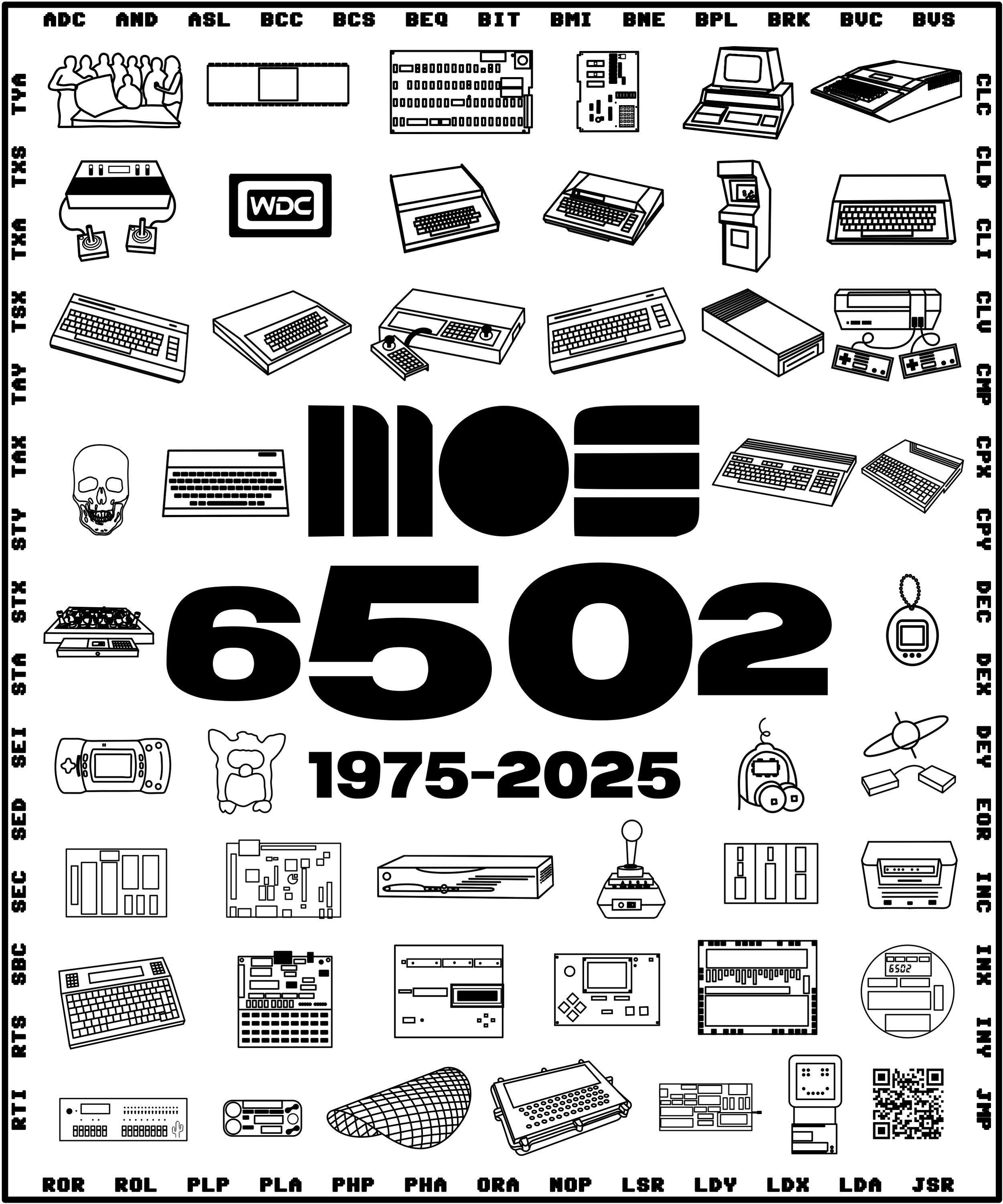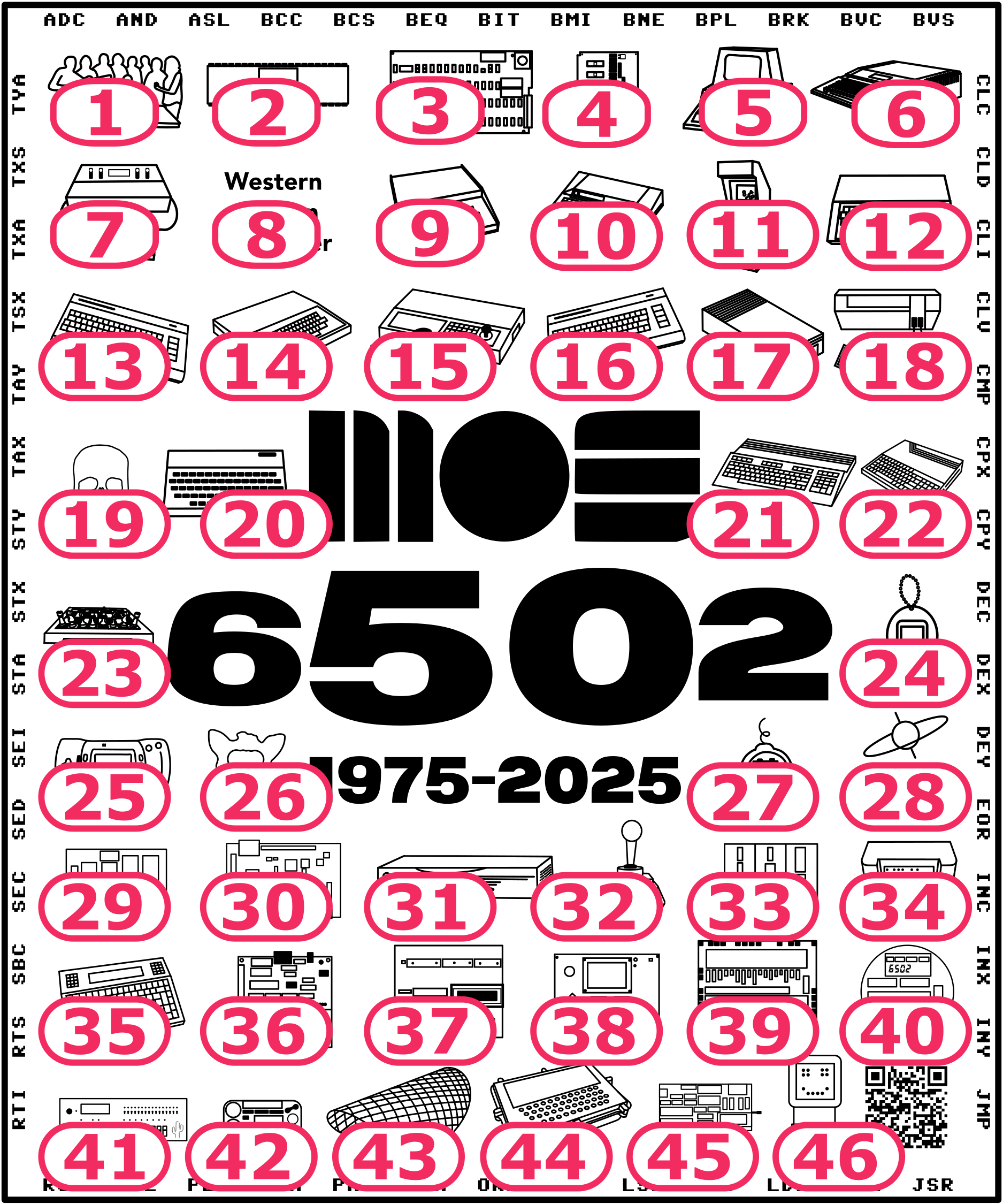
THE MOS 6502 50th ANNIVERSARY SHIRT DESIGN AVAILABLE NOW
Key to the designs:
40-PIN DIP chip design details and schematic
Apple I of course
More for the next version!
6502 Powered Watch https://hackaday.io/project/166496-65p-6502-powered-watch
EMMA II
SYM-1 by Synertek
PAL-1
Micro-KIM
AIM-65
Help me find all the toys and gadgets that have a 6502 inside!
Feedback? Questions? Send me an email.

